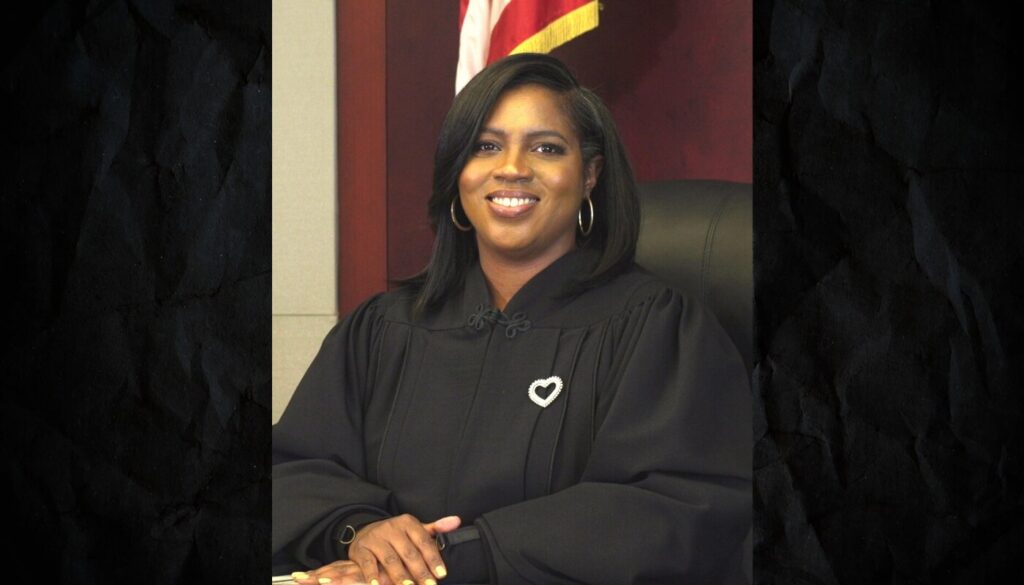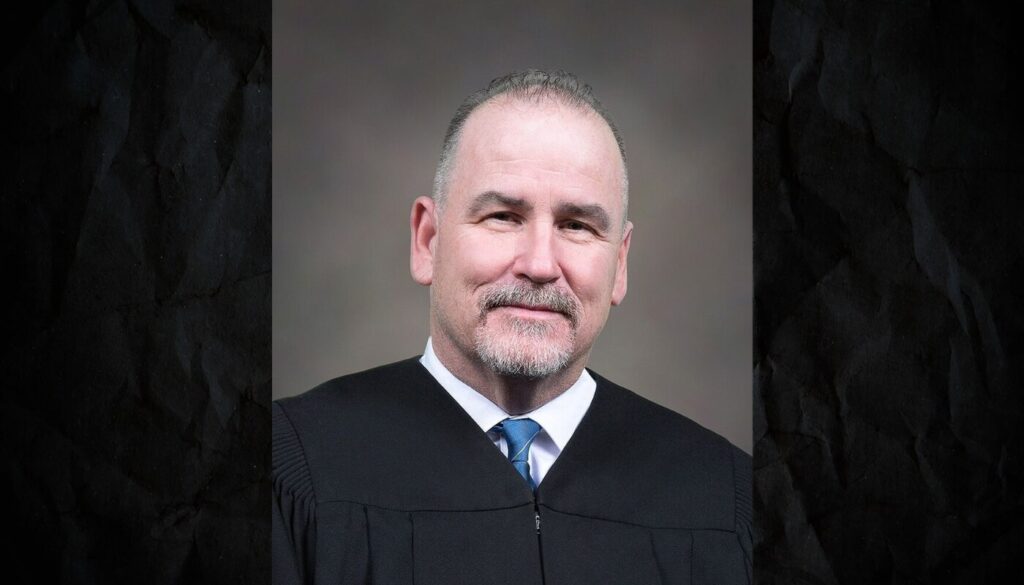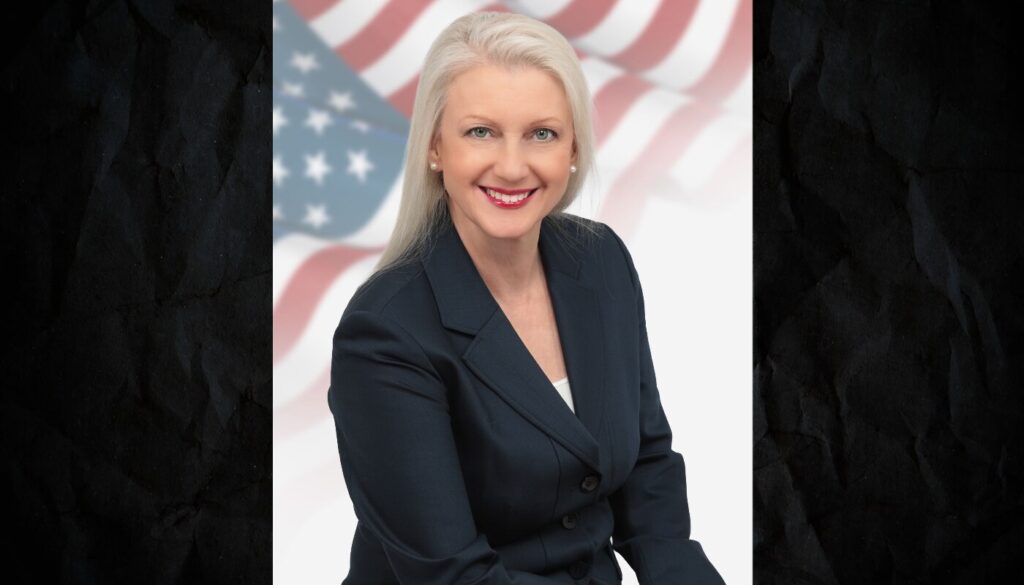Spotlight PA is an independent, nonpartisan newsroom powered by The Philadelphia Inquirer in partnership with PennLive/The Patriot-News, TribLIVE/Pittsburgh Tribune-Review and WITF Public Media. Sign up for our free newsletters.
HARRISBURG — In May, Democrats and Republicans will choose their parties’ candidates for three vacant seats on Commonwealth and Superior Courts. The winners will compete in the November general election.
Pennsylvania’s two intermediate appellate courts have the power to affirm or reverse decisions made in lower courts. Their rulings can be appealed to the state Supreme Court, Pennsylvania’s court of last resort.
The person who wins the open seat on Commonwealth Court could help shape Pennsylvania’s laws on everything from elections to firearms, while the two candidates who win seats on Superior Court could decide the outcomes of high-profile criminal cases. Judges on both courts are often top candidates to fill openings on the Pennsylvania Supreme Court.
The two intermediate appellate courts serve distinct roles in the commonwealth’s legal system.
Commonwealth Court presides over civil actions brought by and against the Pennsylvania state government and hears appeals primarily in cases involving state departments and local governments. Superior Court handles criminal, family and civil cases that are appealed by county Courts of Common Pleas.
Not all voters will be able to participate in the upcoming judicial primaries, which will be held May 16. Pennsylvania is one of nine states that has closed primaries, which prevent third-party and unaffiliated voters from participating in partisan elections. (Unaffiliated and third-party voters can, however, vote on ballot questions, other referendums and special elections during a primary.)
>>Register to vote, change your registration, request a mail ballot and read more guides at spotlightpa.org/elections
Pennsylvania is one of a handful of states that elect judges in partisan contests, meaning candidates run under the banner of a political party, collect endorsements and raise money.
There are a few key differences between a judicial election and other political elections in the commonwealth, however. Prospective judges can’t directly ask for donations, though their campaign committees can. They also can’t make promises that they’ll rule in certain ways.
Because judicial elections tend to have relatively low voter turnout, and because judges have less direct contact with the public than local representatives, party endorsements can be a powerful determinant of who wins a judicial primary.
Ratings from the Pennsylvania Bar Association can be similarly important. The bar ranks judicial candidates as “highly recommended,” “recommended,” or “not recommended” based on the candidate’s judicial record and interviews with a judicial evaluation commission.
Spotlight PA has noted these rankings, as well as other key details, in its profiles of the candidates:
- Commonwealth Court
- Democratic candidates
- Republican candidates
- Superior Court
- Democratic candidates
- Republican candidates
Commonwealth Court
The nine-member Commonwealth Court is the first stop for many high-profile cases.
Recent rulings include a 2022 decision that found the state’s mail voting law unconstitutional — a decision later overruled by the state Supreme Court — and a February opinion that found the state’s education funding system violated the rights of parents and students in poorer districts.
Judges serve initial 10-year terms, then face a nonpartisan retention vote, which usually succeeds.
There is one seat open on Commonwealth Court this year, and both parties’ primaries have multiple candidates vying for the nomination. The court currently has five judges who were elected as Republicans and three elected as Democrats.
Democratic candidates

Neft is an attorney based in Mt. Lebanon who works in commercial litigation.
Neft previously ran for Superior Court in 2021, ultimately finishing behind the two other candidates in the Democratic primary.
A graduate of Boston University School of Law, Neft has predominantly spent his career in private practice. He clerked for former Superior Court Judge William Cercone in Pittsburgh from 1991 to 1995, drafting memorandums on civil and criminal issues.
Neft served as a committee member for the Mt. Lebanon Democratic Party from 2016 to 2020, when he resigned to run for Superior Court. He was reappointed after his loss in the primary but resigned again in November 2022 for his current Superior Court bid.
The Pennsylvania Bar Association rated Neft as “recommended,” writing that peers viewed him as “hard working, honest and committed to equal justice, fairness and impartiality in the judicial system.”
Read Neft’s answers to the PBA questionnaire here.

Wolf is a judge on the Philadelphia Municipal Court, where he has served since 2018.
Prior to his election to the court in 2017, Wolf ran a legal practice based in Cherry Hill, New Jersey, that focused on employment law and civil rights. In his PBA questionnaire, he noted that his clients included “many women” involved in pregnancy discrimination, hostile work environment and sexual harassment cases.
Wolf spent years in the U.S. Army Reserve, serving as an officer from 2003 to 2020 and deploying to Afghanistan and Iraq. After resigning his commission in 2020, he enlisted in the Pennsylvania Army National Guard.
The Pennsylvania Bar Association rated Wolf as “recommended,” saying that his writing is “clear and concise,” and noting that he has a history of public service.
Read Wolf’s answers to the PBA questionnaire here.
Republican candidates

A Cumberland County resident and Widener University law school graduate, Martin is the former parliamentarian of the state Senate and is endorsed by the state Republican Party in the primary race for Commonwealth Court.
As the secretary-parliamentarian, Martin advised the chamber’s presiding officer on how to run floor proceedings in accordance with the state constitution, law and chamber rules.
Before joining the chamber, she served as a staffer and then an attorney for former GOP Govs. Tom Ridge and Tom Corbett, as an attorney for the U.S. Navy and as a law clerk for a Lancaster County judge.
The state bar association rated her as “recommended,” saying that Martin’s “substantial administrative law experience will serve her well.”
Read Martin’s answers to the PBA questionnaire here.

A Berks County lawyer and Widener University law school graduate, Prince runs a firm that specializes in gun-related litigation.
Prince has sued the city of Harrisburg to block the enforcement of old gun laws, and sued the state and federal governments to block bans on bump stocks and partial firearm frames that lack identifying information, which opponents have labeled “ghost guns.”
He has the endorsement of a handful of conservative rank-and-file GOP lawmakers, county sheriffs and gun rights groups, including Firearms Owners Against Crime.
In February, Prince attended a Susquehanna County Republicans event and posed for a group photo that included Frank Scavo, a former Republican legislative candidate who was sentenced to 60 days in prison for participating in the Jan. 6 riot at the U.S. Capitol. GOP state Supreme Court candidate Patricia McCullough was also in the photo.
Prince told Spotlight PA that he wasn’t aware of Scavo’s background when he took the photo.
“It is impossible to know everyone’s personal background from a 1-minute interaction,” he said.
Prince is not recommended by the state bar association, which found that he “lacks the depth and breadth of experience and preparation necessary to take on the commanding role of judge on the Commonwealth Court.”
In an email, Prince said he disagreed with his rating and pointed to the success of candidates who didn’t have the group’s blessing.
“I have confidence voters will once again see that a single organizational endorsement is not the full measure of a candidate, and that they will base their decision on the totality of actual experience, especially in the courtroom,” Prince said.
Read Prince’s answers to the PBA questionnaire here.
Superior Court
The 15-member Superior Court handles all nongovernment-related criminal and civil cases. Primary voters will pick two candidates from their own party; the two Democrats and the two Republicans with the most votes will move on to the November general election.
The panel’s main role is to review lower courts’ verdicts. Notable recent decisions include a 2019 opinion tossing out rapper Meek Mills’s conviction on drug and gun charges.
Judges serve initial 10-year terms, then face nonpartisan retention votes, which usually succeed.
There are two open seats on Superior Court this year. Its partisan makeup is currently split, with seven Democrats and seven Republicans. The president judge of the court is selected through a vote by members of the Superior Court and serves a five-year term.
Democratic candidates

Beck is a Pittsburgh-based attorney who works in commercial litigation. She ran for Superior Court in 2021 but was defeated in the primary by Timika Lane.
Beck clerked for state Supreme Court Justice Christine Donohue from 2016 to 2019, and for Donohue on Superior Court from 2010 to 2015.
In her questionnaire for the Pennsylvania Bar Association, Beck said that during her time as a clerk on Superior Court she drafted memoranda and published opinions on nearly 500 decisions.
Beck has also worked at KidsVoice, a nonprofit agency that advocates for children in the child welfare system in Allegheny County’s Juvenile Court.
The state bar association rated her “highly recommended,” writing that Beck possesses “the highest combination of legal ability, experience and integrity.”
Read Beck’s answers to the PBA questionnaire here.

Lane has served as a Philadelphia Court of Common Pleas judge since 2014.
Lane first ran for Superior Court in 2021. She won the primary, beating Beck, but lost by 7 points to Republican challenger Megan Sullivan.
Before becoming a lawyer, Lane worked for four years as a public school teacher, then attended law school and spent a year clerking for Judge Renée Cardwell Hughes in the Philadelphia Court of Common Pleas.
She then spent a year working primarily in private practice family law before taking a job as an assistant public defender in Philadelphia from 2004 to 2009.
She also spent several years as legal counsel for Democratic state Sen. Anthony Williams before being elected to the Philadelphia Court of Common Pleas in 2013. The trial court hears appeals for civil, criminal and family matters.
The Pennsylvania Bar Association rated Lane ”highly recommended,” saying that her “writing is well-reasoned, clear and concise.”
Read Lane’s answers to the PBA questionnaire here.

Dugan is a judge on the Philadelphia Municipal Court, a trial court where civil and criminal cases in the city are first adjudicated. First appointed to the court in 2007 by former Democratic Gov. Ed Rendell, Dugan was then elected to the court in 2009 and retained in 2015. Dugan’s peers on the court elected him president judge in 2019.
Dugan attended law school between two stints in the U.S. Army — first as an enlisted airborne infantryman in the 1980s and then as a civil affairs noncommissioned officer in Iraq and a judge advocate officer in Afghanistan. He held the rank of U.S. Army captain when he retired from the military in 2016.
In 2010, Dugan co-founded Philadelphia’s Veterans Court, which handles cases in which current or former military members are charged with nonviolent misdemeanors. All judges who preside over the court are veterans.
As of March 23, the Pennsylvania Bar Association had not assigned Dugan a rating.
Republican candidates

A Clarion County resident who holds a law degree from Ohio Northern University, Battista previously served as assistant general counsel for the departments of Health and State under former Govs. Tom Corbett, a Republican, and Tom Wolf, a Democrat. She also was a prosecutor in Franklin and Venango Counties, and was a contract specialist for the Department of Defense.
She has since left that job to run for office, according to the Courier-Express, and now works as vice president of state and federal contracting for The Judge Group, a Wayne-based consulting firm.
She is endorsed by the state Republican Party.
As of March 23, the Pennsylvania Bar Association had not assigned Battista a rating.

Smail has been a Westmoreland County Common Pleas judge since former Republican Gov. Tom Corbett appointed him to the bench in 2014. Before that, he was a private practice attorney who ran unsuccessfully for numerous county offices. He received his law degree from Duquesne University.
He is endorsed by the state Republican Party. On its website, the party points to rulings Smail made in 2020 “that upheld essential anti-fraud requirements for casting a mail-in ballot.”
That year, Smail ruled against the Westmoreland County Board of Elections in a case brought by a Republican candidate for state Senate in an extremely close race.
He ordered the board to throw out 204 provisional ballots — those that are cast when a person’s registration cannot be immediately verified — it wanted to count. Those 204 provisional ballots were cast by people who were wrongly told by election workers that they also needed to sign their precinct’s pollbook. By signing the book, the voters instead indicated they cast a ballot using a voting machine.
Smail ruled that the board of elections did not conduct due diligence in accepting those 204 votes without “further substantiating evidence” that they hadn’t voted twice.
“While the Court is loath to impose the consequences of a failure of the Board onto an innocent electorate … the court must apply the provisions of the Elections Code consistently and as written by our legislature,” Smail wrote in the 12-page decision.
The bar rated Smail “recommended,” “based on his extensive background, legal ability and temperament.”
Read Smail’s answers to the PBA questionnaire here.
WHILE YOU’RE HERE… If you learned something from this story, pay it forward and become a member of Spotlight PA so someone else can in the future at spotlightpa.org/donate. Spotlight PA is funded by foundations and readers like you who are committed to accountability journalism that gets results.



